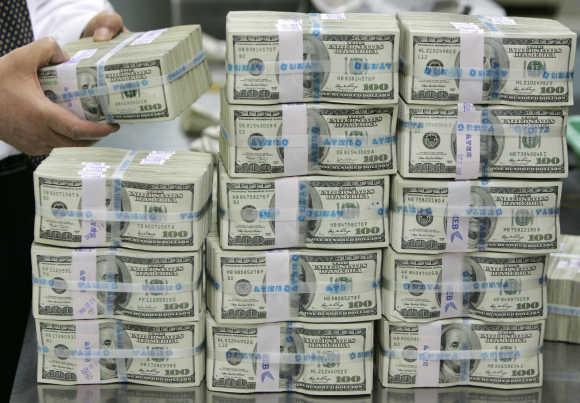 | « Back to article | Print this article |
 Foreign direct investment in India has increased by about 35 per cent to $13.6 billion during the first half of 2013 with merger and acquisitions accounting for the bulk of inflows, says an UNCTAD report.
Foreign direct investment in India has increased by about 35 per cent to $13.6 billion during the first half of 2013 with merger and acquisitions accounting for the bulk of inflows, says an UNCTAD report.
During January-June 2012, the country had received $10.1 billion of foreign direct investment (FDI). The report, said that foreign fund inflows into India has pushed the total figures for the South Asian Association for Regional Cooperation (SAARC).
"An increase in flows to the SAARC is accounted for mainly by the rise in flows to India," it said while releasing the FDI estimates.
FDI through mergers and acquisitions has registered a growth of 65.7 per cent during the first half of 2013 to $1.8 billion as against $1.1 billion in January-June 2012. In new projects, however, FDI has declined by 48.7 per cent to $8.8 billion during the period.
Among BRICS (Brazil, Russia, India, China and South Africa) members, India stood at fourth position, above South Africa, in terms of FDI inflows.
China ($67 billion) retained its second position after after the UK, among the world's largest recipients of FDI in this period. Russia with $56 billion is at the fifth position, Brazil ($30 billion) at eighth. South Africa has received only $3.3 billion during January-June 2013.
The report said that the global foreign direct investment inflows were an estimated $745 billion in the first half of 2013 compared with the same period in 2012, "a rise of 4 per cent , with a diverging trend between developing and transition economies, and developed countries". It said that in the first half of 2013, flows to developed countries declined.
"However, this decline was more than offset by a rise in flows to developing and transition economies, which accounted for more than 60 per cent," it added.
UNCTAD estimates that 2013 FDI flows will remain close to the 2012 level, despite some improvements in macroeconomic conditions in developed economies.
"In addition to risks related to the Euro area and the so-called fiscal cliff in the US, the transition to a slower growth pattern in some emerging markets and weaker consumer demand in developed countries might have a negative impact on FDI flows this year," it said.
Looking further ahead, UNCTAD forecasts that global FDI flows are poised to increase in 2014.
In developing and transition economies, the increase was driven by acquisitions in Central America and the Caribbean as well as record inflows into Russia.
"Although flows to developing Asia fell slightly, the region continues to absorb more than half of the FDI directed to developing economies as a group, and one quarter of global FDI flows," it added.